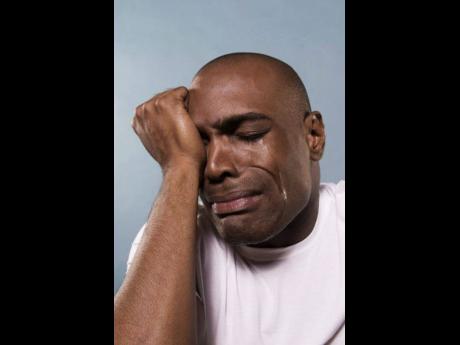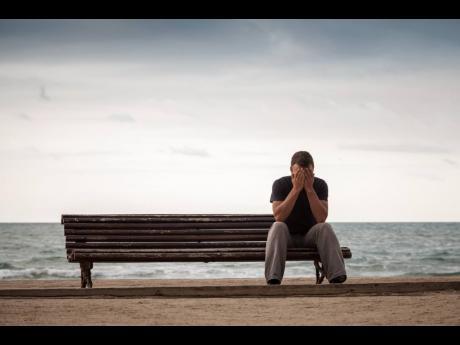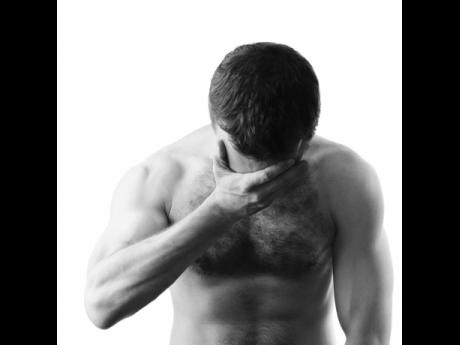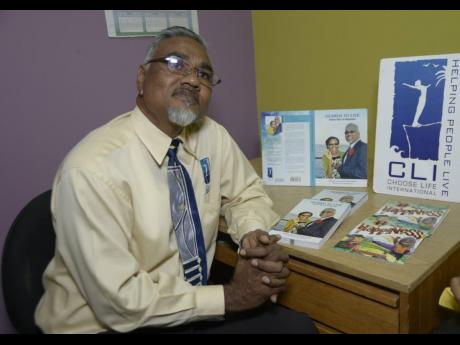89% of suicide victims are men
Amid revelations that almost nine in every 10 suicide victims in Jamaica are male, a counsellor has urged men to find sounding boards to talk through their stress and hurt and not bottle up their rage and anxiety.
Donovan Thomas, founder of Choose Life International, believes that a failure to engage in talk therapy has led to more than 200 men taking their lives in less than five years.
Statistics from the Jamaica Constabulary Force (JCF) indicate that 238 persons committed suicide between January 2015 and March 3, 2019. Of this number, 212, or approximately 89 per cent, were males.
“Males internalise things, females would talk about it. So the man would go down on the corner and smoke, spend some time with his friends and drink, but he wakes up back with the same reality,” said Thomas.
“The lady would actually talk about it, and talk is therapy, even if you ladies talk too much,” he quipped.
At least 16 persons had took their own lives up to March 3 this year. As is the case for every year, the overwhelming majority were males. Apart from the fact that men tend to internalise their problems, Thomas believes that more men take their lives because of the financial pressure they bear as breadwinners.
“To a large extent, the man feels that he needs to deliver, he needs to meet his obligations, and sometimes when he is not able to, he feels less than,” he said.
“Sometimes we contribute to that type of issue in our own lives. Like one man called me one day and said, ‘Doc, sometimes I feel like I want to kill myself,’ and I say, ‘Yeah, tell me what is going on,’ and his response was, ‘Mi babymother them a pressure me,’” he shared.
While women do come under financial pressure, Thomas finds that they are less likely to commit suicide because of their religious ties.
“On a whole, the rate of suicide in Jamaica is low compared to different parts of the world. The rate of suicide is low among women because there is more religious awareness and more commitment to religion and relationship with Jesus in our Jamaican context,” the suicide counsellor said.
“When you go to the church, you have many more women, compared to men generally. These women know that this too will pass, that God is not going to give them more than what He is prepared to help them bear, that they can cast their cares upon Him because He cares,” he said.
What has sparked public outrage and sparked concern among counsellors like the Choose Life pioneer is the prevalence of men who commit suicide after killing their wife or girlfriend.
“In many of these cases, they said that if I can’t get this woman, then nobody else is going to get her,” Thomas told The Sunday Gleaner.
More than 80 murder-suicides were committed between January 2000 and August 14, 2017. Police data indicate that only two of these were committed by women. Of those who have committed murder-suicides, 24 were policemen.
On February 15, businessman Junior Wint used his licensed firearm to fatally shoot his girlfriend, 24-year-old Wendy Scarlett, before killing himself after an argument developed between them, allegedly because he disapproved of her attending a funeral.
The latest murder-suicide involved 49-year-old Susan Puranda of Whitehall Avenue and her common-law husband, 47-year-old Gary Puran.
Puran, a licensed firearm holder, shot Puranda during an argument on March 1 and then turned the weapon on himself.
Thomas laments the fact that several persons who are mentally unstable have access to licensed firearms.
“Men use more drastic means compared to women. A woman will overdose [and] may cut her wrist. A man uses a gun, a rope, or jumps,” he explained, indicating quicker modes of death.
He said that suicide is often triggered by mental trauma.
“People are hurting and hurting deeply, and all of us in this nation can be a part of the solution by providing support, showing genuine care and concern, and stepping into sombebody’s world,” he said.
Tools to assess suicide risk
P- Plan: The more detailed the plan is, the closer the person is to the suicide act.
I- Intensity of the method: The more drastic is the more likely the person is to complete the act.
N- Nearness of the method: Does the person already have the means of death? You have to separate the means of death from the person. So you should, for example, get the person to throw away the pills in the toilet or remove the gun from the person’s reach.
S- Support system: Step into somebody’s world and help that person. Let them know that they are important. Sometimes persons are going through difficult periods and need somebody to help them.




